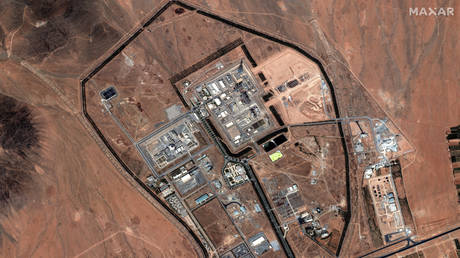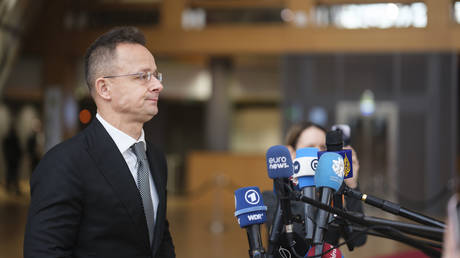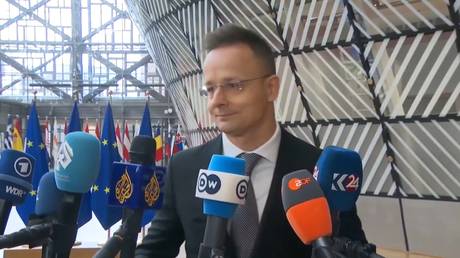
Intelligence reports differ as the IAEA says the fuel could have been moved before the attacks, the outlet says
US intelligence officials are divided over the fate of Iran’s enriched uranium stockpile following recent US and Israeli airstrikes on key nuclear facilities, the New York Times reported on Thursday.
The hostilities began on June 13 when Israel launched strikes on Iran, claiming Tehran was close to developing a nuclear bomb – which has been denied by the International Atomic Energy Agency (IAEA) and US intelligence.
The US joined the campaign on June 22, striking several nuclear facilities. A ceasefire brokered by Washington came into effect on Tuesday and has so far been upheld.
US President Donald Trump has said the strikes “completely and totally obliterated” Iran’s nuclear infrastructure. However, US intelligence assessments and international watchdogs reportedly suggest that while the facilities were damaged, Iran’s capability to resume its nuclear program remains.
US officials said intelligence assessments on the status of Iran’s enriched uranium stockpile are inconsistent, with differing views among Iranian officials contributing to the uncertainty, according to the outlet.
Parts of the Natanz nuclear facility, where some of the uranium was believed to be stored, were damaged but not destroyed in the US and Israeli airstrikes, the report said, citing US officials.
Due to limited access and conflicting assessments, the US intelligence community has not reached a firm conclusion about how much of
the material Iran has retained, people familiar with the findings told the NYT.
Following a classified Senate briefing on Thursday, several Republican lawmakers stressed that destroying or seizing the stockpile was not an objective of the strikes.
“I didn’t want people to think the problem is over, because it’s not,” Republican Senator Lindsey Graham told reporters, noting that the nuclear sites were significantly damaged.
There is also uncertainty over the original location of Iran’s uranium stockpile. Trump said it was at Fordow, while others pointed to Natanz. The IAEA reported that most of it was stored at Isfahan, where Iran operates reactors and nuclear facilities. Some experts believe the stockpile was dispersed across multiple sites.
IAEA Director General Rafael Grossi said Iranian officials told inspectors they would relocate the material if it was threatened. The uranium was stored in containers small enough to fit “into the trunk of an ordinary car,” he added.
In the days leading up to the US missile strike on Isfahan, surveillance reportedly shows vehicles moving items into or out of the labs.
Grossi said this week he believes much of the uranium remains in Iran’s hands. “I don’t know if they moved all of it,” he said. “But the evidence points to their moving out a lot of it.”




